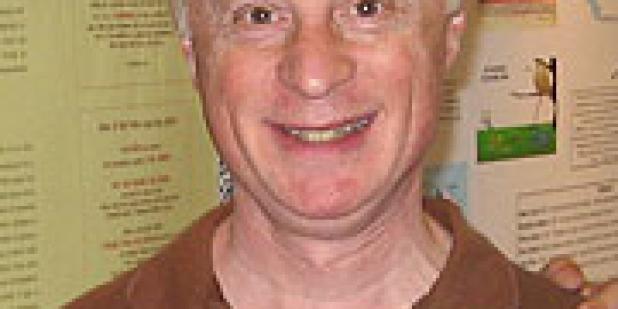Join us for a free one-day workshop for educators at the Japanese American National Museum, hosted by the USC U.S.-China Institute and the National Consortium for Teaching about Asia. This workshop will include a guided tour of the beloved exhibition Common Ground: The Heart of Community, slated to close permanently in January 2025. Following the tour, learn strategies for engaging students in the primary source artifacts, images, and documents found in JANM’s vast collection and discover classroom-ready resources to support teaching and learning about the Japanese American experience.
Religious Activism in Modern Taiwan
Robert P. Weller will speak on religious activism in Taiwan at Columbia University.
Where

Dr. Robert Weller’s work concentrates on China and Taiwan in comparative perspective. His actual research topics, however, are eclectic—running from ghosts to politics, rebellions to landscape paintings. Perhaps what unites everything is an interest in finding the limits to authority in all its settings.
Dr. Weller’s earliest work began with the problem of religious meaning and authority: Who has the power to impose an interpretation? Could you impose one across a land as vast and a history as long as China’s? His first book (Unities and Diversities) examined this through arguments about whether China had a single unifying set of religious ideas; his conclusion was that control over meaning was too limited and multiple to create unity. His second book (Resistance, Chaos, and Control) used very different material—it compared cases of resistance. The analysis hinged on the unusual moments where it becomes possible to impose a unified interpretation. This appears to be the crucial process in converting “cultural resistance” (like smoking in the high school bathroom) into a political movement. He continues to have an interest in the limits to interpretational authority, especially through one of its most extreme forms—silence.
A second broad area of interest has been the problem of culture change in its global context, with all its flows and stoppages, appropriations and resistances. His book on the environmental consequences of changes in the understanding of “nature” (Discovering Nature) examines the ways that Western ideas entered China and interacted with indigenous understandings to create something new. His work on civil society (Alternate Civilities) similarly looks at the influx of ideas about governance and social organization and their long-term consequences, arguing that something like a civil society can be built without looking quite like any place in the West.
That interest in the relationship between state and society has continued through his edited book on nongovernmental organizations and political change in Asia. It also informs one of his current major projects, an examination of the new role of religions in delivering a wide range of secular services to people in Chinese societies—building hospitals, offering scholarships, providing emergency aid, taking care of the elderly, and so on.
Dr. Weller’s other major research endeavor right now is a more theoretical exploration of ritual. A 2008 book (the product of a long collaboration with several colleagues here), Ritual and Its Consequences, argues that all societies have a tension between a ritual aspect (what you do makes you who you are) and a sincere aspect (what you do is only the reflection of who you are). Modernity, it argues, has embraced the sincere side in a way that is historically unusual and that creates inherent social problems. Dr. Weller and his colleagues continue to work toward another volume that will think more about problems of ambiguity, boundaries, and empathy, in part as they relate to ritual.
Featured Articles
Please join us for the Grad Mixer! Hosted by USC Annenberg Office of International Affairs, Enjoy food, drink and conversation with fellow students across USC Annenberg. Graduate students from any field are welcome to join, so it is a great opportunity to meet fellow students with IR/foreign policy-related research topics and interests.
RSVP link: https://forms.gle/1zer188RE9dCS6Ho6
Events
Hosted by USC Annenberg Office of International Affairs, enjoy food, drink and conversation with fellow international students.
Join us for an in-person conversation on Thursday, November 7th at 4pm with author David M. Lampton as he discusses his new book, Living U.S.-China Relations: From Cold War to Cold War. The book examines the history of U.S.-China relations across eight U.S. presidential administrations.




